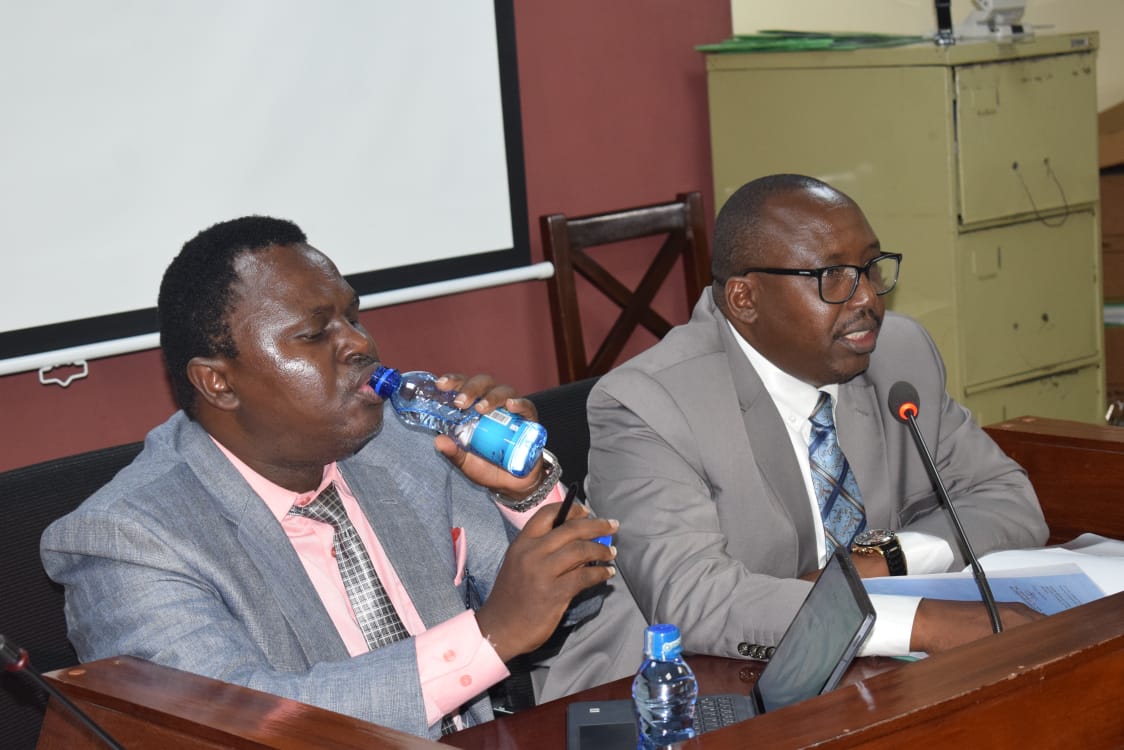
 The Authority's CEO, Eng. Julius Mugun( right) and Head of Infrastructure Development Robert Nthenge When they appeared before the Nairobi County Water and Sanitation Committee./HANDOUT
The Authority's CEO, Eng. Julius Mugun( right) and Head of Infrastructure Development Robert Nthenge When they appeared before the Nairobi County Water and Sanitation Committee./HANDOUT
Senior officials from the National Water Harvesting and Storage Authority, together with members of the Water and Sanitation Committee, have agreed on modalities under which the authority can collaborate with the county to improve water infrastructure.
The officials who made a rare appearance at the Water committee explained how the county can benefit from some of its services.
Led by the body's Chief Executive Officer Julius Mugun, the officials shared various areas to explore, among them flood control and drainage management, rainwater harvesting, drilling of boreholes and rehabilitation of existing ones.
The CEO explained that counties have the constitutional mandate to offer water services, which means national government agencies must collaborate with devolved units.
"The Water Act 2016 and the 2010 Constitution assign responsibility for water supply and sanitation to the 47 county governments, and the Water Act 2016 provides the legal framework for their implementation," he said
The Authority has implemented several water for schools’ projects in Nairobi and is seeking to tap into the Nairobi situation where flooding is common, while water harvesting is hardly practised.
The authority is seeking to formulate strategies for sustainable development and maintenance of water systems,a joint venture to explore measures to mitigate flooding and improve drainage systems and advocacy for adoption of environmentally sustainable rainwater harvesting practices.
It is also seeking collaboration on projects to advance access to reliable water sources through borehole initiatives.
Committee Chairman Kennedy Oyugi welcomed the initiative and promised to arrange for more meetings that will involve officials from the county, Nairobi and Athi Water agencies respectively.
According to a report by the Centre for Science and Environment (CSE), Kenya faces a national water crisis with more than 16 million of the Kenyan population relying on untreated and unsafe water sources.
Rural families spend approximately $38 per month on water, while urban households with piped systems in cities like Nairobi spend only $4.46.







